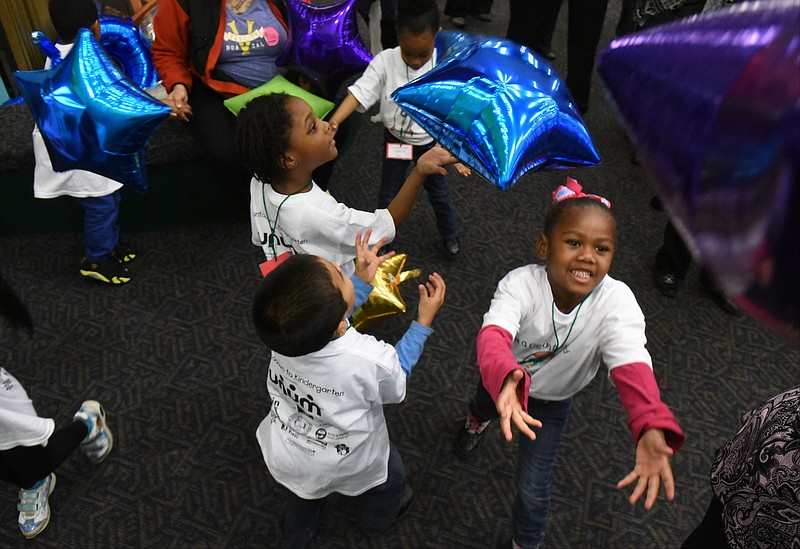Tennessee's pre-kindergarten programs are in the news for a second time in a month.
As usual, the questions are about money and politics, first - and education, second.
But this time, Tennessee Gov. Bill Haslam is on the right side - the correct side, as opposed to the right-wing one.
Gov. Haslam wants to wait a year to drill down and sort out issues raised by a Vanderbilt University study that calls into question the long-term impact of Tennessee's $85 million pre-kindergarten programs.
Some of Haslam's fellow Republicans in the Legislature, including Senate Speaker Ron Ramsey, want to pull the plug and end pre-k for some 18,000 4-year-olds.
Sen. Frank Niceley, R-Strawberry Plains, said "pre-k is a waste of time" and suggested that Haslam redirect the $85 million to other education programs.
Ramsey called pre-k "a liberal, feel-good program."
Other studies suggest pre-k does benefit students. That's why Vanderbilt's study was a jaw-dropper, finding that the positive impacts of Tennessee's pre-k for economically disadvantaged children were significant at first, but faded out in early elementary grades. In some cases, the study found pre-k's impact decreasing to the point that by second or third grades, some students who attended the program were actually falling behind their peers.
Not only does the study fly in the face of most everything else we're told about pre-k and early childhood education, on face value, at least, it flies in the face of common sense. And Haslam, rightly, wants to know more: "My recommendation would be to spend the next year looking at whether it's a quality [of pre-k programs] issue," he recently told reporters.
We all should want to know more because the Vanderbilt study raises questions that may well put the spotlight on our entire early elementary school programs.
For instance the Vandy study doesn't explain how those children who were so bright so early suddenly fell behind, but one thing is certain: Those children did not suddenly learn only to suddenly become dumb.
The study does note that both children who took pre-k classes and those who did not attend pre-k "flattened out" and began to lag below national norms by the second grade. And that trend continued into the third grade.
Ominously, what that may mean is that an $85 million-plus-a-year statewide investment targeting the 18,000 at-risk preschoolers - about $4,700 a student - cannot overcome a mediocre and declining state K-3 public school system.
We need to know what happened.
Did these children who received a pre-k boost get to their kindergarten and first three grades to suddenly become under-challenged? Did they become suddenly ignored among a more diverse group of public school students? Were they intellectually starved in our traditionally underfunded regular school classrooms?
"TN-VPK was rolled out very quickly [the $85 million pilot program was expanded to a five-year, $425 million statewide investment] and not all pre-k classrooms in Tennessee are alike," Dale Farran, co-principal investigator and the Antonio M. and Anita S. Gotto Professor of Teaching and Learning at Vanderbilt's Peabody Research Institute told National Public Radio last month. "What might you get from the same pre-k program if you had a common vision and could push the quality up? These are among the questions we are raising in light of the findings of our study."
To NPR, Farron explained the effect of the underfunded expansion this way: "It's like saying spinach is really good for you, but we can't afford spinach. But here, I've got this Easter grass. Maybe that will be just as good."
Any of the "whys" above are possible. What isn't possible is that these youngsters stopped learning simply because they got a handful of years older.
If anything, Vandy's study seems to show that learning begins amazingly early, but our elementary educational system is incapable of sustaining learning over numerous grades - or worse still, is capable of blunting that earliest learning, whether it happened in pre-k or at home with parents.
Gov. Haslam is absolutely correct in wanting to know more. He is also correct in, for now, resisting calls to end the pre-k program.

